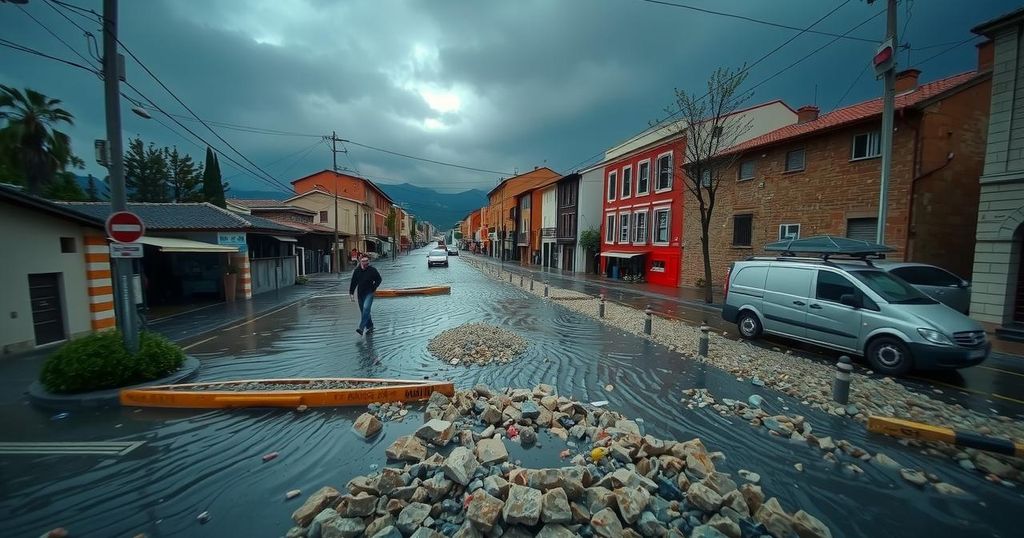Understanding the Catastrophic Floods in Eastern Spain
On October 31, 2024, eastern Spain faced devastating flash floods, resulting in at least 158 fatalities, primarily in Valencia. The rapid downpours inundated roads and homes, trapping many individuals and leading to extensive destruction. Experts correlate this catastrophic event with climate change effects, highlighting an urgent need for preparedness against future weather extremes.
On October 31, 2024, eastern Spain was ravaged by catastrophic floods following extraordinary downpours that left at least 158 individuals dead, predominantly in the Valencia region. The sudden surge of water caught countless residents unprepared, resulting in many vehicles and homes being submerged almost instantaneously. As rescue operations commenced, authorities confirmed the recovery of 158 bodies across various regions, while searches for the missing continue amid widespread devastation. The catastrophic flooding occurred when intense storms targeted the Magro and Turia river basins, producing torrents that overwhelmed riverbanks. The storm’s abrupt nature transformed roads and railways into raging torrents, trapping many within their vehicles and residences. The deluge was unprecedented, with areas like Chiva experiencing more rainfall in mere hours than they had in the previous 20 months. Experts attribute this extreme weather event to factors likely linked to human-induced climate change. Warmer air enhances moisture retention and precipitation, while variations in jet stream patterns have instigated severe weather phenomena. Specifically, a rare and stationary low-pressure system known as a cut-off storm persisted over the area, unleashing relentless rain, which meteorologists refer to as DANAs. Additionally, the Mediterranean Sea recorded its warmest surface temperatures, exacerbating weather instability. Despite historical instances of flooding along Spain’s Mediterranean coast, the magnitude and impact of this incident mark it as the deadliest storm in recent history, outpacing previous disasters, including the tragic floods of 1996 that claimed 87 lives. The devastating combination of drought conditions in preceding years and torrential rains have raised concerns regarding the increasing frequency of such extreme weather events due to climate change.
The flooding disaster in eastern Spain sheds light on the growing concerns surrounding climate change and its consequences. While Spain’s Mediterranean coastline is no stranger to autumn storms, the recent event demonstrates a pattern of increasingly severe weather attributed to changing climatic conditions. Historical references indicate that previous floods, while damaging, did not reach the catastrophic level observed recently. The unfolding climate crisis continues to amplify the unpredictability and intensity of natural disasters, leading to disastrous outcomes such as the recent floods. Acknowledging these patterns beckons a need for urgent climate action to mitigate consequences and enhance infrastructural resilience.
In summary, the inundations that struck eastern Spain were unprecedented in their severity, leading to a tragic loss of life and widespread destruction. The event underscores a pressing need to understand and address the influences of climate change on extreme weather patterns while enhancing disaster preparedness. As communities grapple with recovery efforts, the importance of sustainable practices and climate readiness becomes increasingly pertinent for future resilience.
Original Source: apnews.com




Post Comment